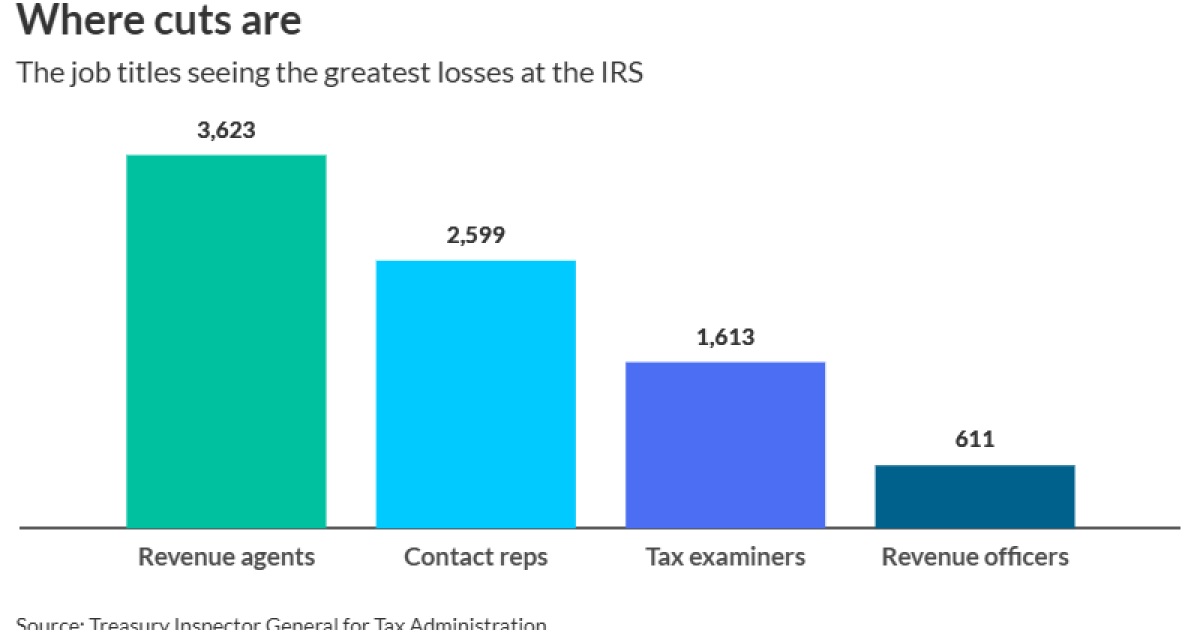The Internal Revenue Service is making progress on whittling down the amount of time it takes to help victims of tax-related identity theft, even as the IRS warns of scammers impersonating its employees once again this tax season.
National Taxpayer Advocate Erin Collins provided an update on her blog Wednesday about the IRS’s delays in assisting identity theft victims. In her annual report to Congress earlier this month, she criticized the delays in helping ID theft victims, saying they had increased to nearly two years in fiscal year 2024, up from 19 months in FY 2023. But more recently the IRS appears to be making slight progress. In conjunction with the Federal Trade Commission’s Identity Theft Awareness Week, Collins posted an update on the IRS’s efforts to reduce the delays, perhaps in response to her recent report.
In fiscal year 2022, the average processing cycle time for identity theft victim assistance cases was 399 days, which rose to an average of 556 days in FY 2023 and then worsened to an average of 676 days in FY 2024, according to Collins. So far in FY 2025, the IRS is averaging 506 days for these kinds of cases in the IRS’s Accounts Management inventory, which represents a slight improvement.
“It is sad that a decrease to 506 days is good news, but after years of increases, it is positive to see the average IDTVA case processing cycle times going down instead of up,” Collins wrote.
In a subset of cases, the delays have been reduced to an average of 100 days for identity theft victim assistance in the Accounts Management function.
“The good news is that the IRS has been working through an initiative to reduce its IDTVA inventory backlog of over 447,000 aged cases,” Collins added. “The IRS prioritized a specific subset of approximately 45,000 IDTVA-AM cases in its backlog from prior to July 13, 2024, that reflect potential refunds for victims. So far in FY 2025, data shows the average processing cycle time for that specific subset of backlogged IDTVA cases is 515 days. Since July 13, 2024, the IRS received 5,500 more IDTVA cases that fit in the same specific subset and is averaging about 100 days to resolve the new cases. The combined average processing cycle time for aged and new cases in this specific subset is about 473 days.”
Separately, the Treasury Inspector General for Tax Administration issued a warning Tuesday that it’s seeing scammers impersonating the IRS and texting taxpayers asking for sensitive information.
“They’re making taxpayers think it’s to get an Economic Impact Payment,” said TIGTA in an email. “But it’s a scam to steal their personal data. Don’t take the bait. Don’t respond. Report this scam to our hotline.”
The scammers are exploiting the IRS’s widely publicized announcement last month that it will be issuing automatic payments totaling $2.4 billion to approximately 1 million eligible people who did not claim the Recovery Rebate Credit (also known as an Economic Impact Payment) on their 2021 tax returns.
“The IRS states that no action is needed by eligible taxpayers to receive these payments,” said TIGTA. “Instead, the payments will go out automatically and taxpayers should receive them by the end of this month. The payments will be automatically direct deposited or sent by paper check.”
TIGTA offered some tips for spotting a scam, pointing out that the IRS will not request personal or financial information by text, and federal government website addresses end in “.gov,” not “.com.” Scammers often make up an official-sounding website address, but those addresses typically have a “.com” extension instead of “.gov.”


 Economics1 week ago
Economics1 week ago
 Accounting1 week ago
Accounting1 week ago
 Blog Post5 days ago
Blog Post5 days ago
 Economics1 week ago
Economics1 week ago
 Personal Finance1 week ago
Personal Finance1 week ago
 Economics6 days ago
Economics6 days ago
 Personal Finance1 week ago
Personal Finance1 week ago
 Finance1 week ago
Finance1 week ago











